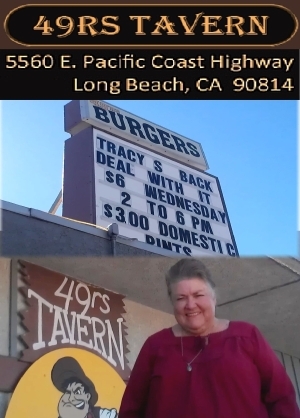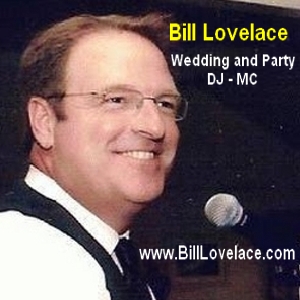The Inland Daily Bulletin piece, carried in the Press Telegram, does an admirable job in citing the lack of government enforcement teeth in the Public Records Act (requiring private lawsuits to compel disclosure.) However it relegates to one materially incomplete sentence one of the hottest issues regarding public records right now: "California law also does not prohibit public officials from conducting public business in private email accounts, and the 6th District Court of Appeal ruled last year that California’s Public Records Act does not apply to communications on private accounts or devices."
But the truth is, that closely watched case isn't fully decided. After the appeals court ruled in favor of secrecy, the California Supreme Court agreed to hear and consider the issue anew. The plaintiff in the action prevailed at the trial court level.
California's First Amendment Coalition [quoted in the Ontario, CA piece in another context] eloquently described the issue years ago in this 2009 essay by its Executive Director Peter Scheer:
[First Amendment Coalition text]...All public officials favor open government in principle. Who would dare say otherwise? In reality, however, they are in a perpetual search, guided by clever lawyers, for new ways to circumvent disclosure requirements -- at best, because they view requests for records as a nuisance, and at worst, because they have something to hide (which can range from the merely embarrassing to the indictable).The latest device for openness avoidance is the use of personal email accounts (and, increasingly, text messaging too) for government communications. Mayors, city council members, agency executives and school superintendents have been told that if they do government business on their gmail or yahoo accounts -- anything but their official .gov email -- their communications, no matter how focused on government matters, will never see the light of day...
Lawyers for local government say that email and text messages sent or received on a private account, no matter their content, are not "public records" because they are not "...owned, used, or retained by" a government agency, as the Public Records Act requires. Electronic communications are "owned, used, or retained by" government only if they reside on a government server, they say. Despite the superficial plausibility of this reasoning, it is, indeed, only superficially plausible.
A government agency doesn't do anything except through people -- employees, elected officials, consultants, whatever -- who are the government's agents. Without getting too deep into legalese here, the point is that the actions of the government's agents are imputed to the government, and the government is responsible for those actions. An arrest by a police officer, a mayor's promise to a campaign contributor, a public school teacher's grading of a student paper -- all are actions of and by the government entity that these people represent.
The same is true for written communications about government matters that these people create or receive, regardless of the technology used or the account status. The communications are "owned," "used" and "retained" by government because they are owned, used and retained by persons in their capacity as agents of the government.
Here's an analogy. Suppose the mayor of your town, at a private meeting in her private home, signs a written agreement with a contractor to expand the local airport. The agreement is a paper document in the mayor's house, miles away from her office at city hall. There is no doubt that this document is a public record that belongs to the town because it is "owned," "used" and "retained" by the mayor as the town's agent. Nothing changes if the document sits, not on the mayor's kitchen table, but in the digital in-box of her personal email account at msn.com. Either way, it's indisputably a public record that belongs to the town...
Yes, the Long Beach City Council could ask the City Attorney's office to submit an amicus (friend of the court) brief that would put the City of Long Beach on record supporting the plaintiff's pro-transparency position. No, the LB Council hasn't done this.
Yes, if the High Court doesn't rule in favor of the plaintiff's position, the state legislature could fix the digital loophole (which it could and should have done years ago.) No, the LB Council could but hasn't gone on record supporting this overdue transparency in statewide legislation either.
And the Ontario, CA piece omitted mention of this key section of Public Records Act itself, which explicitly provides (Government Code section 6253 (e)): "Except as otherwise prohibited by law, a state or local agency may adopt requirements for itself that allow for faster, more efficient, or greater access to records than prescribed by the minimum standards set forth in this chapter." That means that the transparency-spouting Long Beach City Council could enable digital transparency locally regardless of what the Supreme Court or Sac'to lawmakers do or don't do
We find it amusing that even when trying to localize some chain-written piece on "Sunshine Week" -- and even with Hillary Clinton's use of personal emails to conduct government business so visibly in the news -- the Long Beach PressTelegram can't bring itself to mention the anti-transparency record of Long Beach City Councilmembers on this very timely matter.
On April 16, 2013, seven then-Council incumbents -- Garcia, Lowenthal, DeLong, O'Donnell, Johnson, Austin and Neal (Andrews absent) -- sat silently and refused to second a motion by then-Councilwoman Gerrie Schipske to discuss in a Council committee several transparency measures she proposed. It was a compound proposal that included requiring elected officials to disclose
When not one Councilmember seconded her motion, Councilwoman Schipske said "how sad" and Mayor Foster sought to move on without public testimony on the item. However retired Deputy City Attorney Jim McCabe came to the public speakers podium and sought to be heard. Mr. McCabe commended Councilwoman Schipske for bringing item forward...and commented that in his view, the item would have to be brought to the voters. To hear the item (total time under six minutes), click here.
To date not one of LB's eight current Councilmembers (five newly in office as of mid-July 2014, one office is vacant until an April 14 election) has moved to change the anti-transparency status quo that blocks your access, and ours, to public business conducted via private email.
The First Amendment Coalition has prepared a simple model policy to address this issue. To view the First Amendment Coalition's reasoning for its model policy, click here. Its key points are:
- All agency staff, when communicating by email on agency business, must use the agency's email system and server OR copy such emails to an address on the agency server.
- All email on the agency's email server will be preserved for a minimum of TWO years.
- The storage of emails on an agency server does not affect their status under the California Public Records Act (CPRA). When responding to a CPRA request for emails, the agency may consider the applicability of any relevant CPRA exemption.
As LBREPORT.com editorialized last week:
The public is waiting for at least one principled Councilmember to agendize the model policy for Council and public discussion. When that Councilmember makes his/her motion, we're interested in seeking which Councilmembers will, or won't, correct the ugly action of the past and put Long Beach on the side of digital transparency and email openness. LBREPORT.com has been unflinching for half a decade in urging digital transparency and we don't intend to stop now. The email issue is symptomatic of other internet issues beyond the scope of this editorial...but in our opinion, enacting the First Amendment Coalition model policy would be movement in the right direction.
The transparency spouting Long Beach City Council and Mayor could become transparency leaders but instead, they are today among California's largest city enablers of non-transparency and email secrecy.
LBREPORT.com will continue to report this story...and we will continue to urge overdue digital transparency on public matters conducted via private digital back channels.
Opinions expressed by LBREPORT.com, our contributors and/or our readers are not necessary those of our advertisers. We welcome our readers' comments/opinions 24/7 via Disqus, Facebook and moderate length letters and longer-form op-ed pieces submitted to us at mail@LBReport.com.
To view a VIDEO message from LBREPORT.com publisher (less than two minutes), click here.
Advertisement | Advertisement |
Advertisement |
Advertisement  | Advertisement |
blog comments powered by Disqus
Recommend LBREPORT.com to your Facebook friends:
Follow LBReport.com with:
RSS |
Contact us: mail@LBReport.com









Hardwood Floor Specialists
Call (562) 422-2800 or (714) 836-7050
